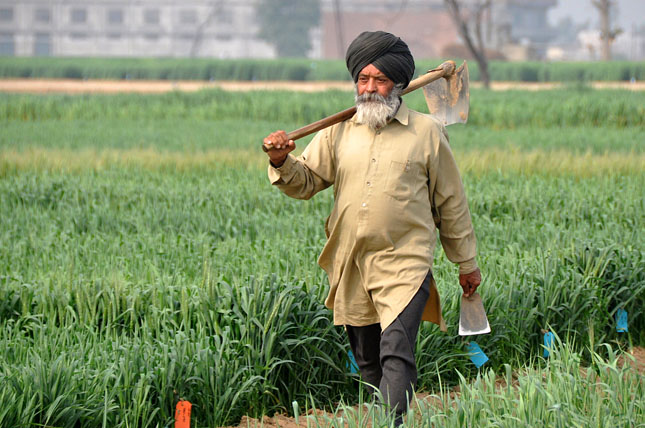-
Lisa Palmer, The Guardian
India’s Climate Tech Revolution Is Starting in its Villages
October 16, 2015 By Wilson Center Staff
Camels pulling wooden carts loaded with coconuts plod down the main road amid speeding motorcycles, buses, rickshaws, and cars. Farmers sit atop slow-moving oxcarts loaded with grasses and other cattle feed. In this region of central Gujarat, India, it appears that rural life has not changed for decades.
But drive down a dirt road outside the village of Thamna, about an hour north of Anand, and the 21st century comes into view. Solar panels drive a water pump that irrigates the fields of farmer Raman Bhai Parmar, 65, who grows bananas, rice, and wheat on seven acres of land.
Parmar’s solar energy pump is one of the technologies being promoted by a new project designed to help rural Indians adapt to climate change. The project, run by the international NGO, the Consultative Group for International Agriculture (CGIAR) Research Program on Climate Change, Agriculture, and Food Security (CCAFS), aims to create 1,000 so-called climate smart villages across six Indian states including Haryana, Punjab, and Gujarat.
Haryana and Punjab are known as the grain basket states of India, producing the majority of the country’s staple wheat and basmati rice for export to the Middle East and European markets. The pumping of groundwater for irrigation over the past thirty years has led to a spike in productivity and increased food security.
Continue reading on The Guardian.
Sources: The Guardian.
Photo Credit: A farmer at the Punjab Agricultural University, India, courtesy of P. Casier/CGIAR.
 A Publication of the Stimson Center.
A Publication of the Stimson Center.



